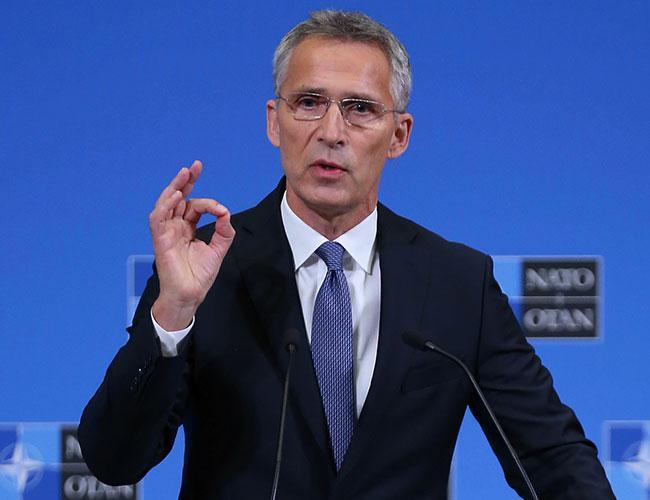NATO chief Stoltenberg says he is ‘pleased’ with Turkey-US road map on Manbij
BRUSSELS

NATO chief Jens Stoltenberg on June 6 said he welcomed a Turkish-U.S. agreement on a road map for the northern Syrian city of Manbij foreseeing the removal of the People’s Protection Units (YPG) from the area.
The secretary-general’s comment on the highly anticipated deal came during a press conference ahead of a meeting between NATO defense ministers in Brussels.
The road map on Manbij was announced on June 4 in Washington after a meeting held between Turkish Foreign Minister Mevlüt Çavuşoğlu and U.S. Secretary of State Mike Pompeo.
The issue, which has caused much dispute between the two allies, with this meeting came closer to be resolved, official statements have shown.
Ankara has long been outraged by the U.S. support for the YPG in the fight against the Islamic State of Iraq and the Levant (ISIL).
Ankara says the YPG is the Syria branch of the outlawed Kurdistan Workers’ Party (PKK), which it considers a terrorist organization.
The road map on the YPG’s removal includes three stages, with the first 10 days devoted to initial preparations between the militaries and intelligence agencies of the two sides for the withdrawal of the Syrian-Kurdish forces and actions to be taken by the two sides in Manbij, Çavuşoğlu said on June 5, speaking to Ankara bureau chiefs of media outlets in the Mediterranean resort town of Antalya.
In the second stage, he said, teams from both sides will hold meetings to conclude preparations. In the third stage the implementation of the road map will be carried out, the minister added.
Meanwhile, a U.S. spokesperson said the roadmap is actually “conditional.”
“Look, the secretary endorsed, along with the foreign minister of Turkey, a general road map,” State Department spokeswoman Heather Nauert said on June 5.
“I want to be clear that this is going to be conditions-based. That means that things can change over time as conditions change on the ground,” Nauert said.
















